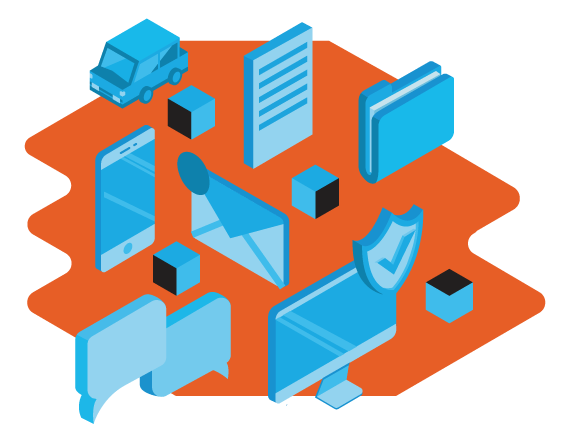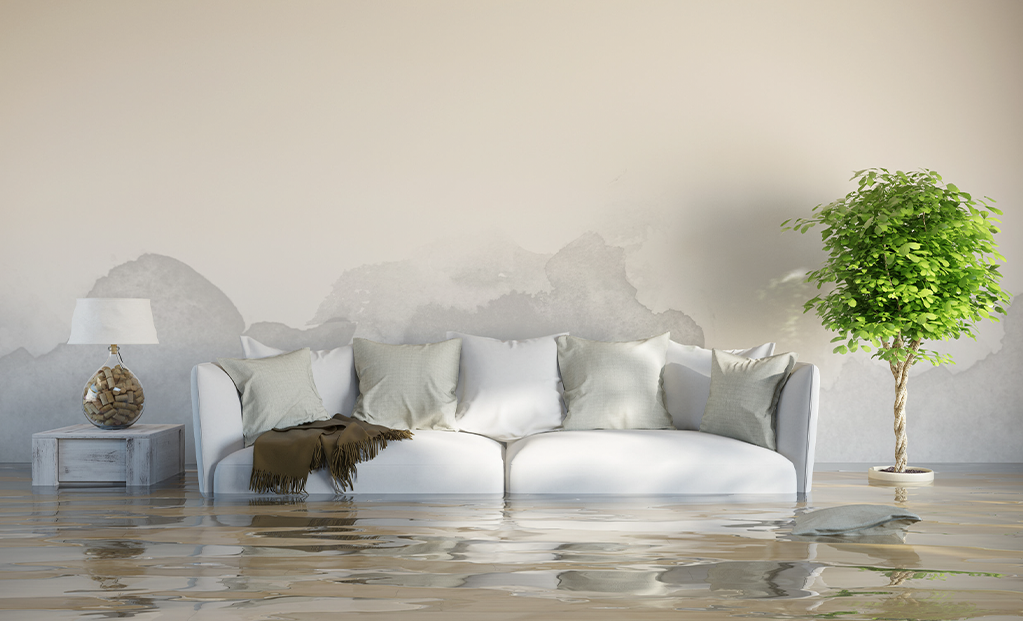
INSURANCE NERDS
BLOG
Flood Safety Tips for your Home & Business
Floods are among the most frequent and costly natural disasters. Flooding often occurs following a storm, hurricane, or after several days of sustained rain. Flash floods can occur suddenly due to rapidly rising water along a stream or low-lying areas.
With the peak of hurricane season upon us, here are some valuable safety and preparation tips to follow before and during a flood.
Know the Difference between a Flood & Flash Flood Watch!
- A flood/flash flood WATCH means a flood or flash flood is possible.
- A flood/flash flood WARNING means flooding or flash flooding is already occurring or will occur soon. TAKE IMMEDIATE PRECAUTIONS!
How to Prepare Before a Flood
1. Make a Safety Preparedness Plan
- Create a household and/or business evacuation plan that includes your pets. Talk with your family and/or employees about what to do if a flood watch or warning is issued. Discussing floods ahead of time helps reduce fear, especially for younger children.
- Stay informed about your community’s risk and response plans: listen to local area radio, NOAA radio, or TV stations for the latest information and updates. Find an online NOAA radio station and/or download the NOAA radio app in the Apple Store or Google Play.
- Be prepared to evacuate quickly and know your emergency routes and safe destinations.
- Ensure each family member knows how to get back in touch if you are separated during an emergency.
- Find a local emergency shelter.
- Check your emergency kit and replenish any items missing or in short supply, especially medications or other medical supplies. Keep it nearby.
- Fill plastic bottles with clean water for drinking.
- Fill bathtubs and sinks with water for flushing the toilet or washing the floor or clothing.
- Fill your car’s gas tank, in case you need to evacuate.
- Bring outdoor belongings, such as patio furniture indoors, and move your furniture and valuables to higher floors of your home or business.
- Turn off propane tanks to reduce the potential for fire.
- Turn off utilities if told to do so by authorities to prevent damage to your home or within the community. If you shut your gas off, a professional is required to turn it back on.
- Unplug small appliances to reduce potential damage from power surges that may occur.
- Download the Emergency App for iPhone or for Android.

2. Protecting Your Home and/or Business Property
If you live in a floodplain, elevate and reinforce your home to make damage less likely during a flood.
-
Check with a professional to:
-
- Raise your furnace, water heater, and electric panel to floors that are less likely to be flooded. An undamaged water heater may be your best source of fresh water after a flood.
- Install check valves in plumbing to prevent floodwater from backing up into the drains of your home or business. (As a last resort, when floods threaten, use large corks or stoppers to plug showers, tubs, or basins.)
- Construct barriers such as levees, berms, and flood walls to stop floodwater from entering the building (if permitted by local building codes).
Seal walls in basements with waterproofing compounds to avoid seepage through cracks.
-
Use sand bags when flooding is expected:
-
- It takes two people about one hour to fill and place 100 sandbags, creating a wall one foot high and 20 feet long.
- Make sure you have enough sand, burlap or plastic bags, shovels, strong helpers, and time to place them properly.
- If a flood is expected, some communities will offer free sandbags to residents. Be sure to watch or listen to the news so you can access these resources.
3. Protecting Your Pets & Animals
- Prepare a pet emergency kit for your companion animals.
- Ensure that any outbuildings, pastures, or corrals are protected in the same way as your home.
- If installing or changing fence lines, consider placing them in such a way that your animals are able to move to higher ground in the event of flooding.
4. Review Your Insurance Policies & Keep Your Documents Safe
- Find out if you are located in a floodplain, which is considered a Special Flood Hazard Area. If so, you are still eligible for flood insurance. Check with your city or county government (start with the Building or Planning Department) to review the Flood Insurance Rate Maps, published by the Federal Emergency Management Agency (FEMA).
- Keep insurance policies, documents, and other valuables in a safe-deposit box. You may need quick, easy access to these documents. Keep them in a safe place less likely to be damaged during a flood.
- Take pictures on a phone and keep copies of important documents and files on a flash drive that you can carry with you on your house or car keys.
5. What to do During a Flood
- Turn off the power and water mains if instructed to do so by local authorities.
- Boil tap water until water sources have been declared safe.
- Avoid contact with floodwater. It may be contaminated with sewage or contain dangerous insects or animals.
- Continue listening to local area radio, NOAA radio, or TV stations for the latest information and updates.
- Don’t use gas or electrical appliances that have been flooded.
- Dispose of any food that comes into contact with floodwater.
Contact our insurance specialists to find out if you are properly covered against all possible damages in your current homeowners’ and commercial insurance policies.
Become Disasterproof With
Financial Resilience by FulcroGO Recover

In case of a hurricane, your safety and basic needs are our priority. FulcroGo Recover offers fast money, no questions asked. This is how it works:
- Policy up to $3,000.
- Payment notification within 5 days of the event.
- Get your cash within 10 days of notification.
- Annual Coverage Endorsed by the Office of the Insurance Commissioner of Puerto Rico.
Call us today to broaden your coverage: 787-725-5784
*Source: https://www.redcross.org/get-help/how-to-prepare-for-emergencies/types-of-emergencies/flood.html
